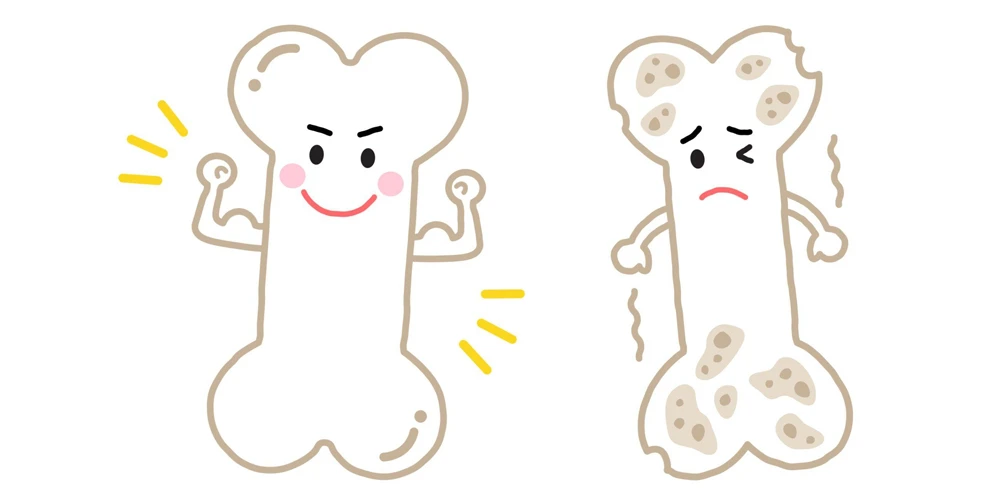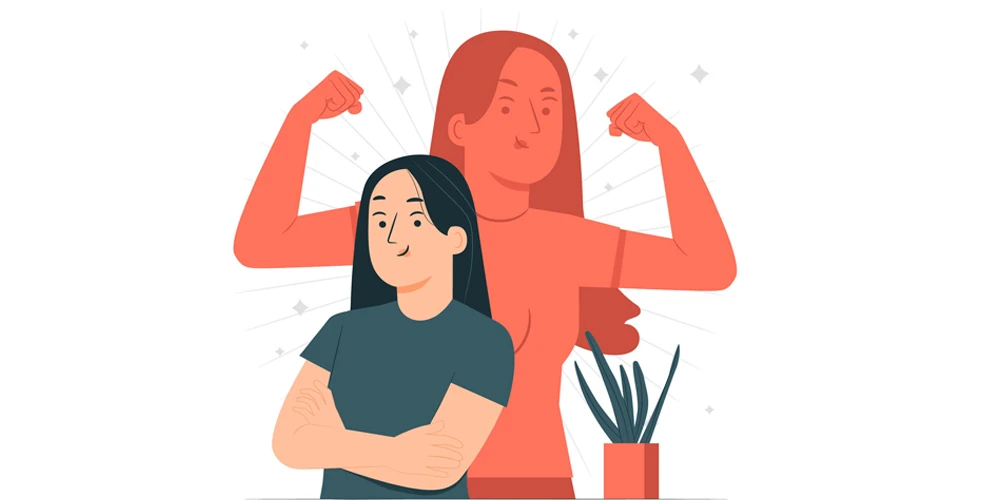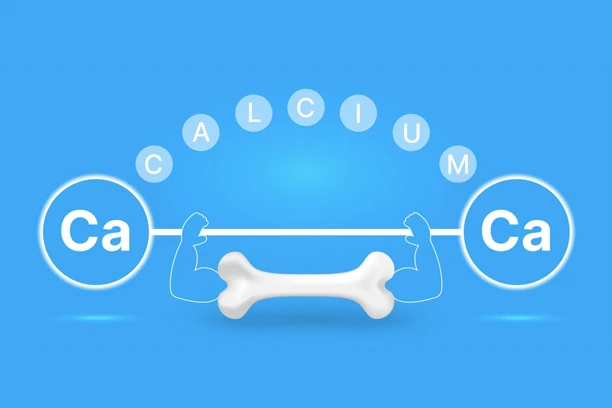Taking care of your bone health is simpler than you believe. Learn the effects that nutrition, exercise, and other lifestyle choices can have on your bone mass.
The body uses bones for a number of purposes, including anchoring muscles, safeguarding organs, and providing structure. While it’s important to grow up with strong, healthy bones, there are things you can do as an adult to preserve bone health. Here is some advice for maintaining bone health.
Why is bone health important?
In your bones, new bone is continuously forming and old bone is continuously disintegrating. Because your body generates new bone more quickly than it dissolves existing bone when you’re young, your bone mass grows. Most adults attain their peak bone mass around the age of 30. Following that, the bone continues to repair, but you lose a little bit more bone mass than you acquire.
How much bone mass you have by the time you are 30 and how quickly you lose it afterwards determine how likely you are to develop osteoporosis, a disorder that makes bones weak and brittle. You have more bone “in the bank” and are less prone to develop osteoporosis as you age if your peak bone mass is larger.
What affects bone health?

Bone health can be affected by various causes. For instance:
- The calcium content of your diet. A diet lacking calcium increases the risk of fractures, early bone loss, and lower bone density.
- Physical exercise. Osteoporosis is more common in physically sedentary people than in physically active people.
- Alcohol and tobacco usage. According to research, smoking can cause brittle bones. Regularly consuming more than one alcoholic drink per day for women or two alcoholic drinks per day for men may also raise the risk of osteoporosis.
- Sex. Women are more susceptible to osteoporosis than males because they have less bone tissue than men.
- Size. If you are extremely thin (body mass index of 19 or below) or have a small frame, you run the risk of having less bone mass to draw from as you age.
- Age. As you age, your bones weaken and grow thinner.
- Family history and race. If you are white or have Asian ancestry, your risk of osteoporosis is the highest. Additionally, having a parent or sibling with osteoporosis raises your risk if you already have a family history of fractures.
- Hormone levels. Bone loss can result from an excess of thyroid hormone. As oestrogen levels fall in women throughout menopause, bone loss occurs significantly. Amenorrhea, the extended absence of menstruation before menopause, also raises the risk of osteoporosis. Low testosterone levels in men might result in a loss of bone mass.
- Eating disorders and other medical issues. Men and women who significantly reduce their food intake and are underweight experience bone deterioration. Additionally, weight-loss methods and diseases like celiac disease might make it harder for your body to absorb calcium.
- Certain medications. Corticosteroid drugs including prednisone, cortisone, prednisolone, and dexamethasone damage bone when taken over an extended period of time. Proton pump inhibitors, methotrexate, various anti-seizure treatments, such as phenytoin (Dilantin), selective serotonin reuptake inhibitors, and aromatase inhibitors used to treat breast cancer, may also raise the risk of osteoporosis.
What can you do to keep your bones healthy?

A few simple steps can be taken to slow or stop bone loss. For instance here is a guide to keep your bones healthy:
- Calcium should be a large part of your diet. For adults 19 to 50 and for men 51 to 70, the Recommended Dietary Allowance (RDA) for calcium is 1,000 milligrammes (mg) per day. The dosage is increased to 1,200 mg per day for people 71 years of age and older.
- Excellent sources of calcium include dairy products, almonds, broccoli, kale, tinned salmon with bones, sardines, and soy products like tofu. If you find it challenging to get enough calcium from your diet alone, discuss taking supplements with your doctor.
- Be mindful of vitamin D. Vitamin D is necessary for calcium absorption in the body. Adults should consume 600 international units (IU) of vitamin D per day, which is the RDA. 800 IU is the recommended daily dose for people 71 and older.
- Excellent sources of vitamin D include oily fish like salmon, trout, whitefish, and others. Additionally, mushrooms, eggs, and fortified foods like milk and cereals are fantastic sources of vitamin D. Sunlight also aids in the body’s production of vitamin D. If you’re worried that you’re not getting enough vitamin D, talk to your doctor about supplements.
- Put some exercise into your everyday regimen. By doing weight-bearing exercises like walking, jogging, and climbing stairs, you can strengthen your bones and stop bone loss.
- Do not overuse drugs. Don’t smoke. If you’re a woman, try not to drink more than one alcoholic beverage every day. Men should limit their alcohol intake to two drinks per day at most.
This is a guide to keep your bones healthy and we hope that it helps you in some way. If you have any worries about your bone health or your osteoporosis risk factors, such as a recent bone fracture, speak with your doctor. A bone density test might be suggested by them The results will be used by your doctor to determine your bone loss rate and evaluate your bone density. Using this information along with your risk factors, your doctor can decide if you would be a candidate for medication to assist in reducing bone loss.


One Comment
Pingback: A Guide To Keep Your Bones Healthy – Sujata Birla Hospital